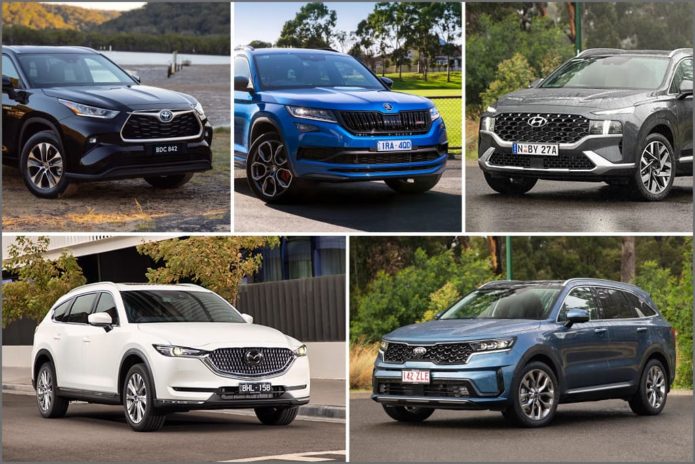Exploring the world of used SUVs unveils plenty of considerations that play a vital role in making the right choice. From financial aspects and desired features to the reliability factor, the quest for the perfect used SUV demands meticulous research and thoughtful contemplation.
In this comprehensive article, we present you with invaluable tips and insights to empower you in your pursuit of discovering the ideal used SUV. Let’s investigate it together, unraveling the key factors that will guide you toward making an informed decision that aligns perfectly with your needs and preferences.
Establishing Your Budget and Prioritizing Your Needs
- Determine your budget. Take into account your financial condition and the maximum amount you are willing to spend on the car. Don’t forget to factor in other fees like insurance, maintenance, and fuel. You can focus on cars that are within your price range and reduce your alternatives by establishing a precise budget.
- Research and prioritize your needs. Think about the quantity of cargo space, the number of seats, the fuel efficiency, the safety features, and the extras you want. To select which characteristics are important for your specific needs, examine your lifestyle and how you plan to utilize the car. You can narrow down your search and find the used SUV that exactly suits your requirements by making a list of your objectives. When weighing your alternatives, take into account going to reputable dealerships like Rolls Auto Sales providing a vast selection of high-quality used SUVs to accommodate different preferences and price ranges.
- Evaluate reliability and maintenance costs. Explore the reliability ratings and reviews of different SUV models to identify those with a good track record. Additionally, consider the maintenance and repair costs associated with the models you are interested in. Some vehicles may have higher maintenance costs or require more frequent repairs, which could impact your long-term ownership experience.
- Consider resale value. Some SUV models retain their value better than others, which can be advantageous if you decide to sell or trade-in your vehicle down the line. Look for popular models or brands known for their strong resale value, as this can provide you with more flexibility and value for your investment in the long run.
Tapping into Online Resources and Expert Advice
- Use online resources. Websites with car reviews provide valuable information on vehicles, reliability ratings, ownership costs, and market values. These resources can help you gather insights and make informed decisions when choosing the perfect used SUV.
- Seek professional guidance. Automotive consultants or experienced car enthusiasts can provide valuable insights and assist you in making the right decision. They can help you navigate through the complexities of the used car market, negotiate with sellers, and ensure that you make a well-informed purchase.
- Consider warranties and extended protection. Extended warranties can provide additional coverage for major repairs and give you added peace of mind. However, carefully review the terms and conditions of the warranty to understand what is covered and any limitations or exclusions.
- Read reviews and recommendations. Online forums, social media groups, and automobile communities can be excellent sources of information. Hearing about other people’s experiences with specific SUV models can provide valuable insights and help you make an informed decision.
Ensuring Vehicle Quality and Reliability
Vehicle History and Inspection
Request the vehicle identification number (VIN) from the seller and use it to obtain a comprehensive report that includes information about previous accidents, ownership history, and maintenance records. Additionally, hire a trusted mechanic to perform a detailed inspection of the SUV to identify any underlying issues or potential problems.
Explore Certified Pre-Owned Options
These vehicles have undergone rigorous inspections and come with extended warranties from the manufacturer. While CPO vehicles may be slightly more expensive than regular used SUVs, the additional benefits and guarantees they offer can be worthwhile, especially for buyers concerned about reliability.
Test Drive and Compare
Never skip the crucial step of test-driving the used SUVs you are considering. This provides the opportunity to personally evaluate the car’s efficiency, maneuverability, and ease of use. Pay attention to factors such as acceleration, braking, suspension, and noise levels. Additionally, compare multiple vehicles side by side to make an informed decision based on your personal experience.
Consider Fuel Efficiency
Fuel efficiency is an important factor to consider when choosing a used SUV. Determine your typical driving patterns and calculate the estimated fuel costs associated with different models. Look for SUVs that offer good gas mileage or hybrid options if fuel efficiency is a priority for you. This will help you save money on fuel expenses in the long run.
Summary
It takes careful study, thorough research, and evaluation to find the ideal used SUV. These criteria include your budget, your needs, the reliability of the vehicle, its market value, and the cost of maintenance. You may choose with confidence if you take the time to investigate, test drive, and evaluate different possibilities. The SUV you choose will also be in line with your long-term objectives and financial capacity if you take into account aspects like fuel efficiency, insurance prices, and total cost of ownership. To make the best decision possible, keep in mind to use web resources, get professional advice if necessary, and get opinions from other SUV owners.


